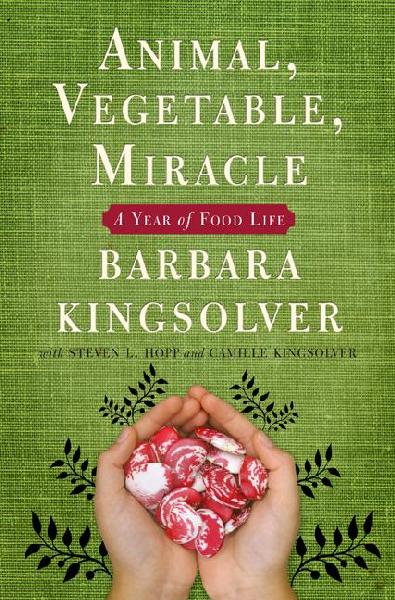oxford word of the year: locavore
Well, the New Oxford American Dictionary recently announced its "Word of the Year."
Ready?
It's "locavore."
A "locavore" buys food from farmers’ markets or grows the food him- or herself. This is partially because locavores claim local food tastes better and is healthier, but also to avoid the environmental costs of shipping food over long distances.
“The word ‘locavore’ shows how food-lovers can enjoy what they eat while still appreciating the impact they have on the environment,” said Ben Zimmer, editor for American dictionaries at Oxford University Press. “It’s significant in that it brings together eating and ecology in a new way.”
“Locavore” was coined two years ago by a group of four women in San Francisco who proposed that local residents should try to eat only food grown or produced within a 100-mile radius.(I recently ate at a San Francisco restaurant, Fish and Farm, which focuses on sustainable and organic food. Fish and Farm grows all its own herbs and its produce is organic and sourced within a 100-mile radius. Also, whenever possible, so are their meats. )
 This is especially interesting for me, since I just finished reading Barbara Kingsolver's Animal, Vegetable, Miracle, published in May of this year. A combination of this book and living in California with locavore roommates has ignited my interest in local and seasonal food. The book itself chronicles one family's experience as they move to Appalachia to experiment with eating locally for one year. I found myself laughing at their adventures with squash surplus and turkey sex. But more importantly, I found myself thinking about food seasonally and considering the environmental effects of having bananas in December. (Many people want carbon cost labeling on food products.) Most surprisingly, I found myself trying out the recipes at the end of each chapter. And, I ate a persimmon (seasonal in November) for the first time in my life.
This is especially interesting for me, since I just finished reading Barbara Kingsolver's Animal, Vegetable, Miracle, published in May of this year. A combination of this book and living in California with locavore roommates has ignited my interest in local and seasonal food. The book itself chronicles one family's experience as they move to Appalachia to experiment with eating locally for one year. I found myself laughing at their adventures with squash surplus and turkey sex. But more importantly, I found myself thinking about food seasonally and considering the environmental effects of having bananas in December. (Many people want carbon cost labeling on food products.) Most surprisingly, I found myself trying out the recipes at the end of each chapter. And, I ate a persimmon (seasonal in November) for the first time in my life.Interestingly enough, 2006's Word of the Year was similarly environmentally-themed: carbon-neutral.
Being carbon neutral involves calculating your total climate-damaging carbon emissions, reducing them where possible, and then balancing your remaining emissions, often by purchasing a carbon offset: paying to plant new trees or investing in “green” technologies such as solar and wind power.
Labels: environment, food, words


0 Comments:
Post a Comment
<< Home